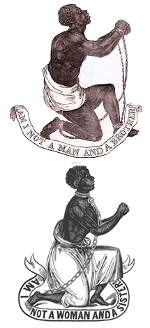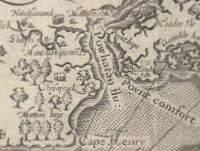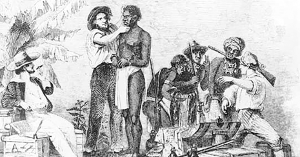The First Slave Ship in America
The Africans had lived in the Ndongo kingdom in what is now Angola. They had been taken prisoner during a war between Portugal and the Kongo and Ndongo kingdoms, forced to march in irons 150 miles to the Atlantic seaport of Luanda, and then put on board a slaver ship, the San Juan Bautista, bound for Mexico, along with more than 300 other enslaved people. En route, the slaver ship was attacked by the White Lion and the Treasurer, an English ship. As a result, White Lion Captain John Jope ended up with the 20, whom he, in turn, traded to the Virginia had no definitive slavery laws, but these African captives were sold into slavery all the same. This was in Jamestown, the first permanent English colony in the New World, founded in 1607. Jamestown already had indentured servants, but these 20 Africans became slaves, working in the tobacco fields of the Virginia colony. Not long afterward, the Treasurer arrived, with more slaves for trade. The American slave trade had begun. |
|
Social Studies for Kids
copyright 2002–2026
David White




 The first ship of slaves arrived at Point Comfort on Virginia's James River on August 20, 1619. It wasn't a straightforward shipment, though. It was a Dutch ship named the White Lion. The ship was a man-o-war, a fighting ship–not a cargo ship.
The first ship of slaves arrived at Point Comfort on Virginia's James River on August 20, 1619. It wasn't a straightforward shipment, though. It was a Dutch ship named the White Lion. The ship was a man-o-war, a fighting ship–not a cargo ship. Virginia colony, represented by Gov. George Yeardley. Reporting the events that day was the Secretary of the Virginia Colony, John Rolfe (whose wife at one time was
Virginia colony, represented by Gov. George Yeardley. Reporting the events that day was the Secretary of the Virginia Colony, John Rolfe (whose wife at one time was 
